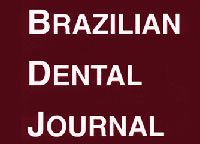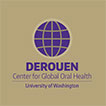
Oral diseases are among the most prevalent non-communicable diseases worldwide, disproportionally affecting vulnerable populations. Oral diseases manifest as pain, impairment, and loss of function, and can affect individuals throughout their lifetime. Our study published in Brazilian Dental Journal entitled “Dental caries and anthropometrics of children living in an informal floating Amazonian community: a cross-sectional pilot study” examines the associations between poor oral health and growth in children in the community of Claverito, on the outskirts of Iquitos, Peru.
InterACTION Labs is a transdisciplinary research program where researchers collaborate with the Claverito community on health research and interventions to improve conditions in the slum community. In 2017 the University of Washington (UW) Population Health Initiative, the Centro de Investigaciones Technologicas, Biomedicas y Medio Ambientales (CITBM), and 100,000 Strong in the Americas awarded InterACTION Labs a pilot study to understand and address health disparities in Claverito.
For this project, the focus was on the relationship between poor oral health and growth in children ages 1 to 18 years old. To quantify oral health status, we looked at traditional decayed, missing, filled teeth (dmft/DMFT) scores as well as an innovative metric of the Significant Caries Index (SiC). To quantify growth, we calculated age-sex-specific scores for height and weight: height-for-age (HAZ), weight-for-age (WAZ), and body mass index for age (ZBMI). Results found that there was a statistically significant negative association between SiC and HAZ scores. Based on our results, there is evidence to suggest a relationship between dental disease and poor growth in children.
Floating communities living in poverty are found globally, and dental caries (tooth decay) is the most common chronic disease affecting children. This research contributes to the growing body of literature demonstrating the relationship between dental disease and anthropometric deprivation in underserved communities – knowledge which is critical to promoting an integrated response to the World Health Organization’s Sustainable Development Goals.
